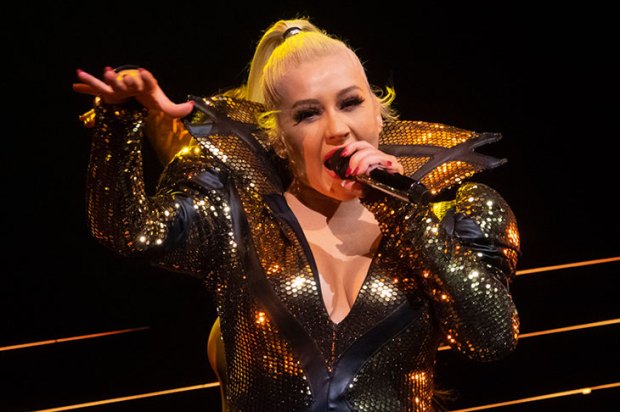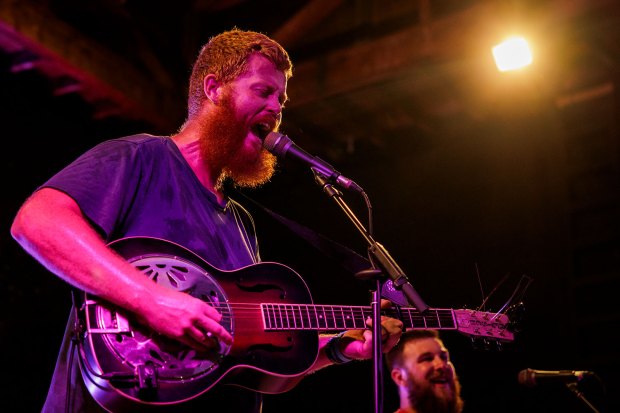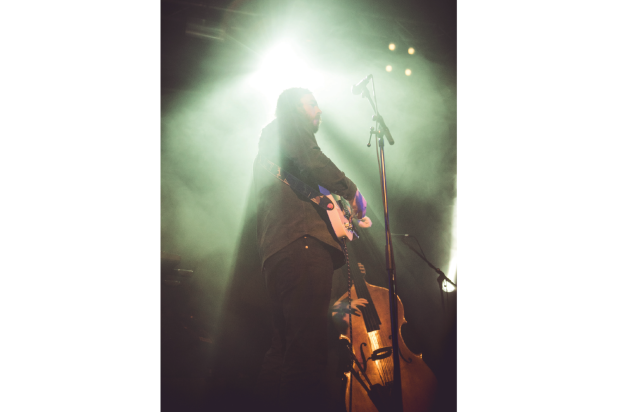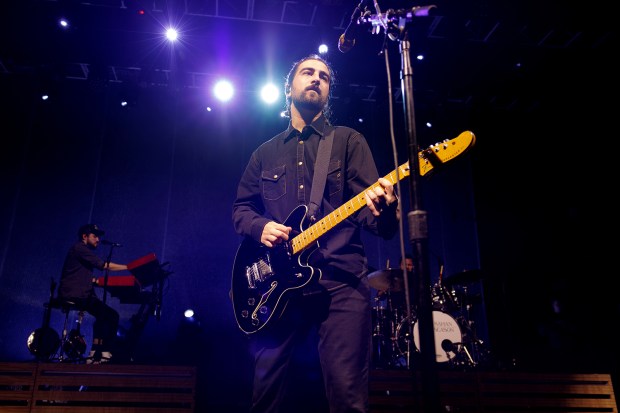One thing about a streamed festival is that the toilets are better than at the real thing. The other thing, though, is that it’s not really a festival. That’s not to knock the North Will Rise Again (TNWRA), which took place over Saturday and Sunday nights a few weeks back, the first featuring Liverpudlian bands and filmed in that city, the second coming from Manchester, with Mancunian groups.
The simple fact is, you can’t replicate a festival online: what the best festivals offer is chance, when one stumbles across something wholly unexpectedly on some outlying stage at an unpromising time of day. Simple economics make that impossible for an event charging a tenner: unless you were to get Woodstock levels of attendance, there would be no way to pay the bands. Hence TNWRA was just three bands per night, and only one each night familiar to a wider audience — the Lightning Seeds representing Liverpool and the Charlatans for Manchester.
The Liverpudlian supports — a young woman going by the name of Zuzu, with a three-piece backing group, and a band called Red Rum Club — served the purpose of reminding one that a band can be wholly capable and perfectly entertaining without really prompting much more than idle curiosity. At a real festival they might make you look up from your chat for a couple of minutes, nod appreciatively, but you’d be unlikely to bother with the 50-yard walk to the front of the stage.
Their shortcomings were highlighted by the main event because the Lightning Seeds — the name under which Ian Broudie operates, with an excellent young band behind him — were a marvel. I suspect Broudie’s ubiquity in the 1990s — ‘Three Lions’, the Goal of the Month music on Match of the Day, hit singles every three weeks — made us all take him for granted. And his absolute lack of charisma (on Saturday night he was, as 25 years ago, just a bloke in dark glasses with a fringe standing pretty much still) means there’s no residual interest in him in the way there is in the Gallagher brothers or Damon Albarn.
Broudie is 62 now; he was already knocking on by the standards of pop stardom when he became famous, having been one of the more notable backroom figures in Liverpudlian pop for a decade before he first recorded as the Lightning Seeds. But all those years of labour meant he knew exactly how to structure a song and how melodies work. And by golly, does he know his way around a melody: you don’t have that many hits with that little charisma unless your tunes can do an awful lot of heavy lifting. I hadn’t listened to these songs in at least 20 years, but they were as fresh and appetising as a hot loaf: ‘Marvellous’, ‘Ready or Not’, ‘Change’, ‘Pure’, ‘Perfect’, ‘Life of Riley’, ‘Sugar-Coated Iceberg’. Broudie’s entire career is overshadowed by that one infuriating song — which very likely made him rich — but beyond that he’s clearly one of the great pop classicists of English music.
It’s one of the great unfairnesses of modern pop history that Broudie is written off as slightly naff, while Liverpudlian peers with the same record collections, such as Lee Mavers of the La’s and Michael Head of the Strands, are remembered as lost geniuses, largely because instead of churning out hit after hit, they chose to lock themselves away with needles and bindles of heroin. I could have listened to the Lightning Seeds play all night.
So good were they, in fact, that they made me rather reconsider my view of the American singer-songwriter Julien Baker, who had played last Thursday evening. I’d closed my laptop on that show thoroughly at ease with the notion that she is one of the best musicians recording right now. But compared with Broudie’s primary-coloured pop, her songs seemed pallid.
That is, I should say, an unfair comparison. Baker is not trying to make primary-coloured pop. Her songs are fuzzier round the edges; she’s not composing hits but capturing moods, even if the tools she uses — guitar, bass, drums and keyboards — are exactly the same as Broudie’s. Her songs are beds for lyrics, rather than delivery systems for hooks. And, as a lyricist, she writes the pants off Broudie and pretty much everyone else (sexuality, addiction and emotional and physical violence provide a fairly strong palette to draw from). She’s making Art, with a capital A.
But pop music isn’t just an art, it’s a craft. And as is so often the case with artists hailed for their incredible lyrics (exhibit A always being for me the critically beloved but commercially ignored Australian band the Go-Betweens), one wonders how much more effective those incredible lyrics might be if the tunes were equally incredible. I feel churlish complaining, because I honestly believe Julien Baker is brilliant. It’s just that the Lightning Seeds felt like mainlining sunshine. And just at the moment, that feels like the best gift a musician can give.
Got something to add? Join the discussion and comment below.
Get 10 issues for just $10
Subscribe to The Spectator Australia today for the next 10 magazine issues, plus full online access, for just $10.
You might disagree with half of it, but you’ll enjoy reading all of it. Try your first month for free, then just $2 a week for the remainder of your first year.














Comments
Don't miss out
Join the conversation with other Spectator Australia readers. Subscribe to leave a comment.
SUBSCRIBEAlready a subscriber? Log in